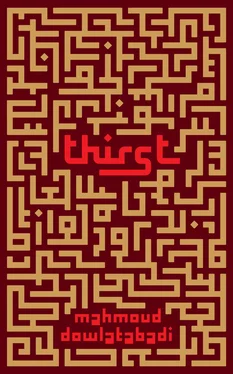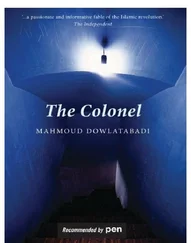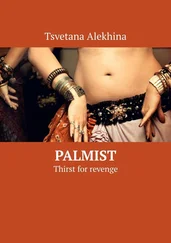‘No, I didn’t interpret it like that either.’
‘Sure … but I meant something deeper, I was referring to habit.’
‘Habit? Habit?!’
‘Yes … habit. We get used to forgetfulness, so lying becomes a habit. Duplicity and hypocrisy become habits; conceit becomes a habit; habit itself even becomes a habit. Your coffee will get cold; please don’t think I’ve read these phrases from a book, or books, and just memorized them.’
‘No, I didn’t assume that.’
‘I see you’re staring at the rows of books on the shelves. Of course, I know some passages from these books by heart. If you like, I’d be happy to recite them for you sometime. But I still haven’t got to the point of my question. To my point about forgetfulness.’
‘I want to hear the answer from you. In your own words.’
‘How about we drink a glass or two first, Major? You’re not on duty. Besides, you’ve made me as flustered as you are yourself. Agreed? Have you ever drunk with literary folk? Of course I’m a rather moderate drinker myself, because I’m not a poet and never was. But Arab poets — with whose names you’ll no doubt be familiar — have discussed every topic there is, and wine was certainly the muse behind their poetic deeds and words; and in extreme cases, they even came to resemble those ancient lords who gave themselves over entirely to drinking and merriment. Though I’m not a poet, still I’ll pour us some drinks. You’ve turned me into an insomniac, Major! Anyway, here’s to joy!’
‘To joy!’
‘And now let’s have another one … and after the third glass I’ll tell you about forgetfulness, about what I meant and mean by forgetfulness! Enjoy! Praise be to his pure, fault-concealing regard!’ *
‘Which Arab poet wrote that?’
‘I’ve forgotten now. I’ll remember later. Let’s drink together. There’s a peculiar merit in drunkenness, which comes from the possibility of recovering the forgotten.’
‘What did you just say? Recovering … finding … forgetting … what?
‘The possibility of recovering the forgotten.’
‘Meaning?’
‘It means that everything that human beings have forgotten in their long journey through life can or may be remembered. Usually one manages to remember in the end!’
‘A long life? I’m not even forty-five yet!’
‘Why, of course; youthfulness is written all over your face. In actual fact, I thought you hadn’t passed forty! No, I was referring to the collective age of human beings, our chronological age … a historic forgetfulness!’
‘I’m confused, Katib, you’ve baffled me! Come on, just spit it out and have done with it! I’m a soldier and being soldierly means being precise. Tell me precisely what you’re trying to say.’
‘Precision … yes, precision. But there was nothing vague in my speech when I spoke of habit. I say humans get used to habit, and forgetfulness becomes a habit for us. Skimming words, passing over words has become a habit for humans. Maybe if pen and paper hadn’t been invented, humans would have developed a sharper capacity for memorizing words. For example, this title of the “noblest in creation” might have left a trace on the memory of mankind that was not superficial and shallow; that would not have been forgotten, and if uttered it would not be out of habit, and so this most important judgement on mankind would not be destroyed by mankind, and this accursed brain would not have dragged me to the edge of insanity, to a point where I have arrived at the horrendous conclusion that there is nothing in this world more vile, base, destructive and hypocritical than the clay of Adam … and my captive in the trench is thirsty, Major. Even monkeys don’t take their own kind as captives …’
‘Well, it’s because …’
‘I know, I know … it’s a fact of life, but no less distressing for that, that if you don’t take him captive, he will kill you! Forgive me, Major, for everyone has a child inside himself, and I’m no exception. You pour this time, Major, pour us another glass!’
‘Are you alright, Katib?
‘I’m fine, yes … couldn’t be better. These flies … these flies are driving me mad! Can you see them? You can’t? Down there, they were on the kitchen table, didn’t you see them? All night long, dancing in front of my eyes … ah … my pen and fingers are both stiff and I stare at them, for hours and hours, staring, and I can’t find a way towards salvation. I can’t find a way. They perish from heat and thirst! Why don’t you exterminate the city’s insects, Major? Isn’t everything under the army’s command now? So why don’t you turn your attention to public sanitation in the city? Pour … please do. Here’s to joy! To revelry, Arab-style! But … what was I saying? Mankind … yes, human beings! I’ve come to the conclusion that God has turned his back on us humans. Turned his face away. Everything … we see everything as ugly and vile. We regard it all as destructive, ruinous, annihilating. Everyone is inflicted with the madness of annihilation. God has turned his back on mankind. The fact that God has turned his face away from human beings is the pet theory of this katib, Major. Mark my words. This is the theory of a Mesopotamian katib, a counter-theory to the famous dictum by that philosopher from the banks of Rhine, who wrote “God is dead”. No, I maintain that God has turned away and humans have slipped their reins and are now on the rampage, destroying everything. Not only other forms of life, but their own kind as well … They perish in the desert, I can’t do anything. They are thirsty … On the shores of the Bosphorus, the fringes of the central plateau, at the foot of Mount Dena … in spite of all the water in the Karkheh River, they are still thirsty. They perish. Sir … why haven’t you touched your coffee? Will you allow me to drink your cup? Forgive me, Major, I’m drinking again … let’s drink together. To joy!’
‘To the joy of conquest! They have assured us we will drink wine once again in Nahavand. Once again! To the joy of conquest! We have conquered and we will conquer again, Katib, and in conquest it is only victory that matters and nothing else. I live or die for conquest and conquest alone. The blood of the Banu Quda’a tribe courses through my veins. The blood of centuries and epochs of bloody wars … We rode upon them and … you say the rest. Yes, you! Aren’t you an Arab too?’
‘Sword, sword, sword and blood. Severed heads … gaping chests … thirst and the dove. Why have I had the image of a dove in my mind for some time now … A dove flying across the sky of history and never finding a single wall or tower to sit upon? Isn’t this Noah’s dove, which is still flapping its wings in search of dry land? Flight … the flight of a dove … a breathless dove … conquest … shroud … word … words … forgetfulness … mind … habit … flies … why don’t you smoke a cigarette, Major? At least use the lighter for me … or this match … or look, look … the desert is on fire. Have you seen the desert on fire before, the earth aflame … fire upon fire … look … look … I’m not a poet … I’m a moderate drinker … pour … one more, Major … I wish this darkness … I wish there was no darkness. A tavern … a coffee-house … why won’t a missile blow up my house? Major?’
‘Conquest … conquest … conquest, Katib! We conquer … I’m a moderate drinker too. I will build you a tavern … I’ll have it built. I’ll break down the doors! I’ll command them to open the tavern’s doors! I have a regiment at my command, no, a battalion! I am of the Banu Quda’a tribe and this Colt … this Colt is my tongue and my blade, Katib. I speak through the mouth of this thing that you see before you … tell me the address of your favourite tavern and get up! Now … let’s go and drink …’
Читать дальше












